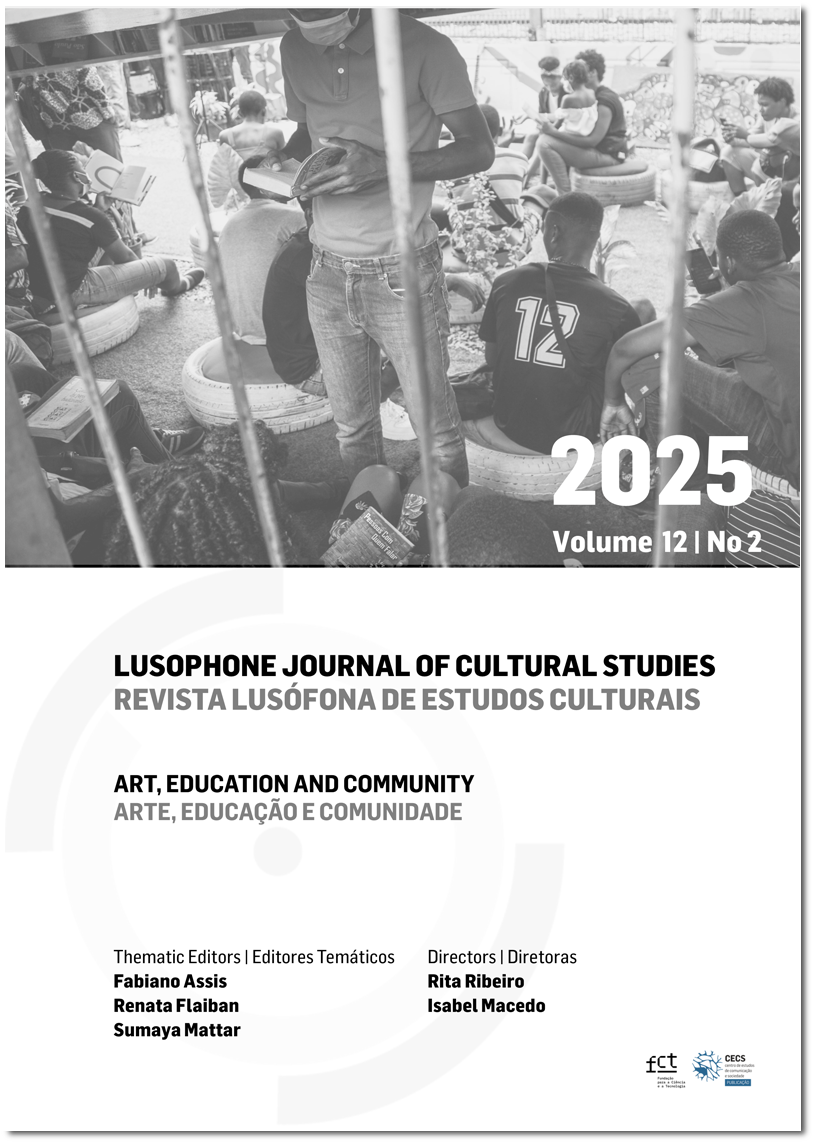Interview With Farid Matuk: Alternative Systems — Liberatory Play in Farid Matuk’s Poetry
DOI:
https://doi.org/10.21814/rlec.6558Abstract
In times of political tension, reflections on history, the past, and how facts are — or are not — transmitted through time come to the fore and create new dialogues in the present. Literature as an artistic expression tells us a lot about the circumstances of a historical period, and what has been perceived as recurring in literary events and circles, where authors talk about their work, is the confrontation with the grand discourse, with the speech of the so-called “enemy”, who, in the course of history, “has not ceased to win” (Benjamin, 1987, p. 225).
Downloads
References
Abramson, S., Damiani, J., & Swensen, C. (Eds.). (2014). The best American experimental poetry. Omnidawn.
Benjamin, W. (1987). Magia e técnica, arte e política (Vol II, R.R. Torres & J.C.M. Barbosa, Trads). Editora Brasiliense.
Bhabha, H. K. (1994). The location of culture. Routledge.
Buck-Morss, S. (2018). O presente do passado (A. L. Andrade & A. Varandas, Trads.). Desterro. (Trabalho original publicado em 2010)
Castillo, M., Joseph, J., & Lin, E. (Eds.). (2024). Here to stay: Poetry & prose from the undocumented diaspora. Harper Collins.
Glissant, E. (1997). Poétique de la relation. Éditions Gallimard. (Trabalho original publicado em 1990)
González, R. (2024). Latino poetry: A new anthology. Library of America.
Martins, L. M. (2022). Performances do tempo espiralar. Perspectiva.
Massey, D. (2005). For space. Sage Publications.
Matuk, F. (2010). This Isa Nice neighborhood. Letter Machine Editions.
Matuk, F. (2018). The real horse. University of Arizona Press.
Matuk, F. (2020, 21 de abril). From for a daughter/no address. The Nation, (4/11), https://www.thenation.com/article/culture/from-for-a-daughter-no-address/
Matuk, F. (2021). Glistering, Aug 2, 1990 – Feb 28, 1991. Bomb Magazine, (155), 88–89.
Matuk, F. (2022a). Moon mirror indivisible. Poetry, The Poetry Foundation, 44–45.
Matuk, F. (2022b). Sentences upon emergent devotions, Poem. The Brooklyn Rail, (march/2022). https://brooklynrail.org/2022/03/poetry/two-322
Matuk, F. (2024a). A page without a people, Concentric, The great commission, Whatso goes, Doubled channel past, Thirst petition. Lana Turner Journal, (17), 11–17.
Matuk, F. (2024b). Crease. The Paris Review, (246), 94.
Matuk, F, & Friedemann-Sánchez, N. (2022). Redolent. Singing Saw Press.
Mignolo, W. D. (2010). The darker side of Western modernity: Global futures, decolonial options. Duke University Press.
Nascimento, A. (1980). O quilombismo. Fundação Palmares.
Quijano, A. (2005). Colonialidade do poder, eurocentrismo e América Latina. In E. Lander, A colonialidade do saber: eurocentrismo e ciências sociais. Clacso.
Rancière, J. (2009). The politics of aesthetics (G. Rockhill, Trad.). Continuum. (Trabalho original publicado em 2004)
Downloads
Published
How to Cite
Issue
Section
License
Copyright (c) 2025 Amanda Amaral

This work is licensed under a Creative Commons Attribution 4.0 International License.
Authors own the copyright, providing the journal with the right of first publication. The work is licensed under a Creative Commons - Atribuição 4.0 Internacional License.








